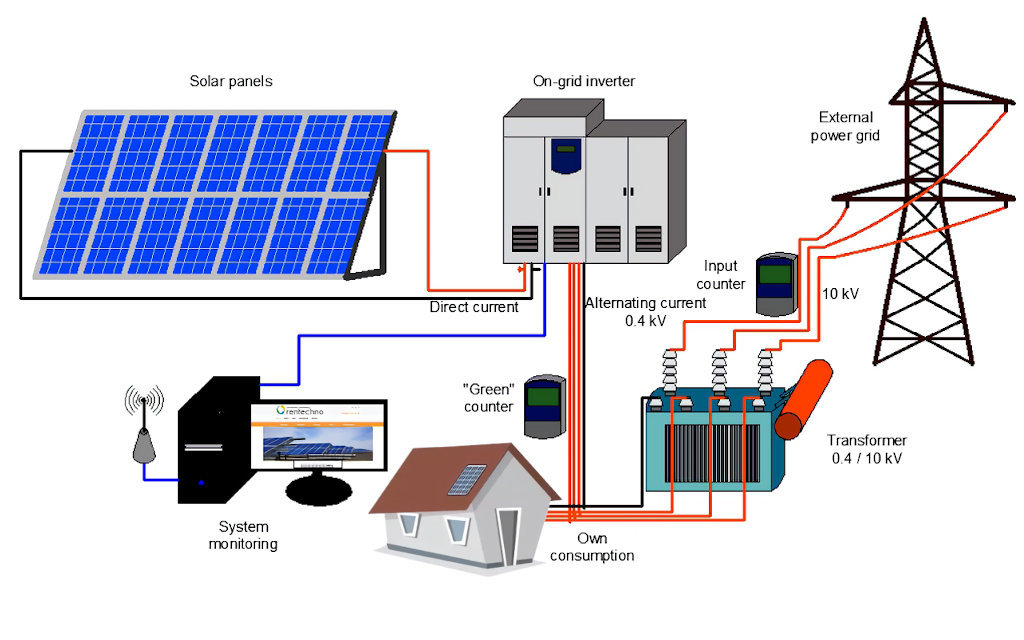Let's talk: +91 79743 29894
Let's talk: +91 79743 29894

A hybrid solar power system combines the features of both an off-grid and on-grid solar power system. It incorporates solar panels, batteries for energy storage, and the ability to connect to the utility grid. This type of system is designed to provide greater flexibility, energy independence, and reliability. In this type of solar power system, Solar panels generate electricity from sunlight which is converted into AC electricity using the inverter. The AC electricity can be used to power the building's appliances. Excess electricity is stored in the battery bank for later use when solar generation is low. If the battery capacity is insufficient or solar generation is low, electricity is drawn from the utility grid. During periods of excess solar generation or when the battery bank is fully charged, surplus electricity can be exported back to the grid. In case of a power outage, the hybrid system can continue supplying electricity from the battery bank. The following components are there in a hybrid solar power system:
These are a few advantages of hybrid solar power systems:
Hybrid solar power systems are well-suited for areas with unreliable grid supply, high electricity costs, or a desire for energy independence. Their design and installation require careful consideration of energy requirements, battery capacity, and system sizing. Consulting with a professional solar installer or engineer is recommended for designing and installing a hybrid solar power system tailored to specific needs and local regulations.